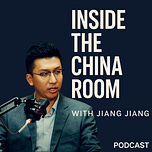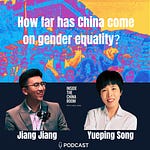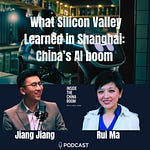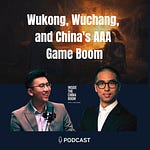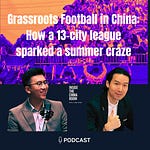Welcome to the Reading Room section of Inside the China Room podcast. I’m your host, Jiang Jiang. This is a new segment I’ve added to the show, where I read aloud some of the most popular stories I’ve published on Substack. Ideally, this section will alternate with my guest interview episodes here on the podcast.
Today, I want to share with you one of my favorite stories of the year so far. Out of the roughly 300 newsletters I’ve published to date, this one has received the most likes. It tells the story of a Japanese student studying in China who spent 21 days hitchhiking from Nanjing—the capital of Jiangsu Province in eastern China, and also my hometown—all the way to Xinjiang, more than 3,000 kilometers away. Along the journey, he was picked up by 16 different drivers.
The student’s name is Tanikawa Hibiki. At the start of his journey, he set up what he called a “social experiment”: he would ask passing drivers if they were willing to give him a ride. If they said yes, he would then tell them he was Japanese—and observe whether they would still agree to take him. As he put it, the results of this “experiment” aren’t polling data or an official survey, but a reflection of the real, everyday human reactions he encountered across China.
After completing his journey earlier this year, his story was published on the WeChat blog of Bindian Weekly, run by China Youth Daily, and he was also interviewed by The Paper. What I love about this story is its authenticity. Although the number of drivers he encountered is a small sample size, and the randomness of the road plays a big role, it still reveals a side of China that even I, as a native, may not always be fully aware of.
Besides, I’ve always felt that compared to cities like Beijing and Shanghai, China’s grassroots society remains far more unfamiliar—and complex—for overseas readers. In fact, even for someone like me, who lives and works mainly in urban areas, these stories are endlessly fascinating. I often find myself learning a great deal from them—not because they offer a clear-cut picture of something “positive” or “negative,” but because they convey a certain raw, textured sense of reality. The complexity of grassroots China is also one of its most compelling qualities. As Tanikawa himself put it: “What I experienced wasn't just a hitchhiking trip, but a journey through the very fabric of a nation.”

